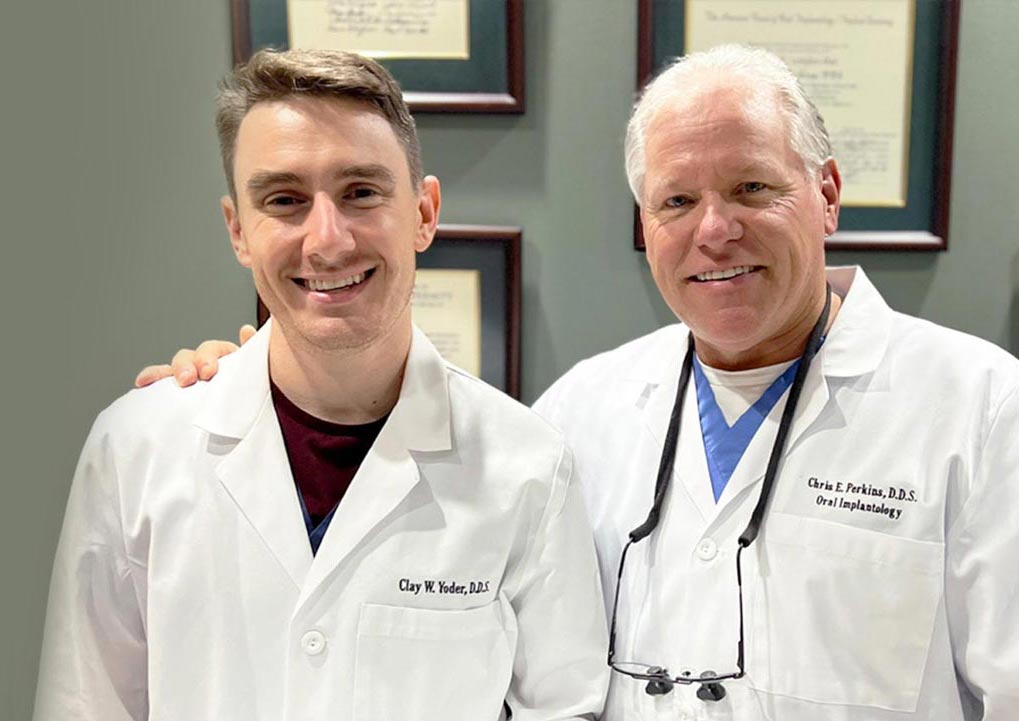
Tooth decay, also known as dental caries or cavities, is a pervasive oral health issue that affects individuals of all ages. At Chris E. Perkins, DDS & Associates in Kingwood, TX, we believe in empowering our patients with knowledge to combat this common dental problem effectively. This guide delves into the causes, symptoms, prevention, and treatment of tooth decay, providing you with the tools you need to maintain a healthy, vibrant smile.
Understanding Tooth Decay
Tooth decay occurs when the enamel, the hard outer layer of your teeth, is damaged. This process begins when bacteria in the mouth convert sugars from the foods and drinks you consume into acids, which then attack the enamel. Over time, this can lead to the formation of cavities.
Causes of Tooth Decay
Several factors contribute to tooth decay, including:
- Poor Oral Hygiene: Not brushing or flossing regularly allows plaque to form on teeth, creating an environment where bacteria can thrive.
- Diet Rich in Sugars and Carbohydrates: Frequent consumption of sugary snacks and drinks provides fuel for bacteria, leading to acid production that erodes tooth enamel.
- Dry Mouth: Saliva helps to neutralize acids and wash away food particles. A lack of saliva, therefore, increases the risk of decay.
- Acidic Foods and Beverages: Regular exposure to acidic substances can wear down enamel over time.

Symptoms of Tooth Decay
Several factors contribute to tooth decay, including:
- Poor Oral Hygiene: Not brushing or flossing regularly allows plaque to form on teeth, creating an environment where bacteria can thrive.
- Diet Rich in Sugars and Carbohydrates: Frequent consumption of sugary snacks and drinks provides fuel for bacteria, leading to acid production that erodes tooth enamel.
- Dry Mouth: Saliva helps to neutralize acids and wash away food particles. A lack of saliva, therefore, increases the risk of decay.
- Acidic Foods and Beverages: Regular exposure to acidic substances can wear down enamel over time.
Preventing Tooth Decay

Treatment Options in Kingwood, TX
The treatment for tooth decay depends on its extent and severity. Options include:
Fillings: To repair cavities caused by mild to moderate decay.
Crowns: For more extensive decay or weakened teeth.
Root Canals: To treat decay that has reached the tooth's pulp.
Extractions: In severe cases where the tooth cannot be save
Frequently Asked Questions
How can I tell if I have tooth decay?
Early tooth decay may not show any symptoms. Regular dental check-ups can help detect decay early on. If you experience pain, sensitivity, or notice visible holes or stains on your teeth, contact Chris E. Perkins, DDS & Associates for an evaluation.
Can tooth decay affect my overall health?
Yes, untreated tooth decay can lead to more serious infections that can impact your overall health. It's important to address cavities promptly.
Is tooth decay reversible?
In its earliest stages, tooth decay can be halted or reversed through fluoride treatment and improved oral hygiene. Once a cavity forms, however, professional dental treatment is necessary.
How often should I visit the dentist?
We recommend visiting Chris E. Perkins, DDS & Associates every six months for a check-up and cleaning, or more frequently if you have specific dental concerns.
